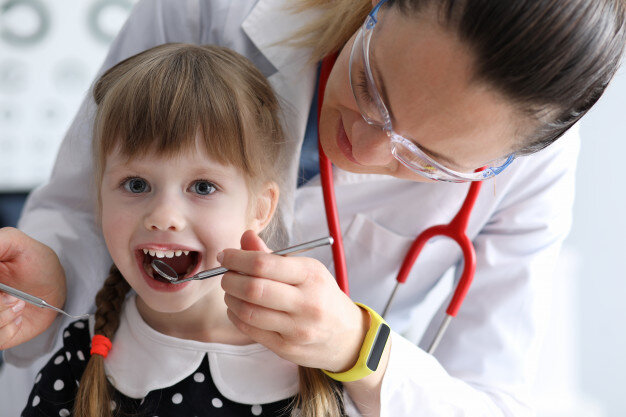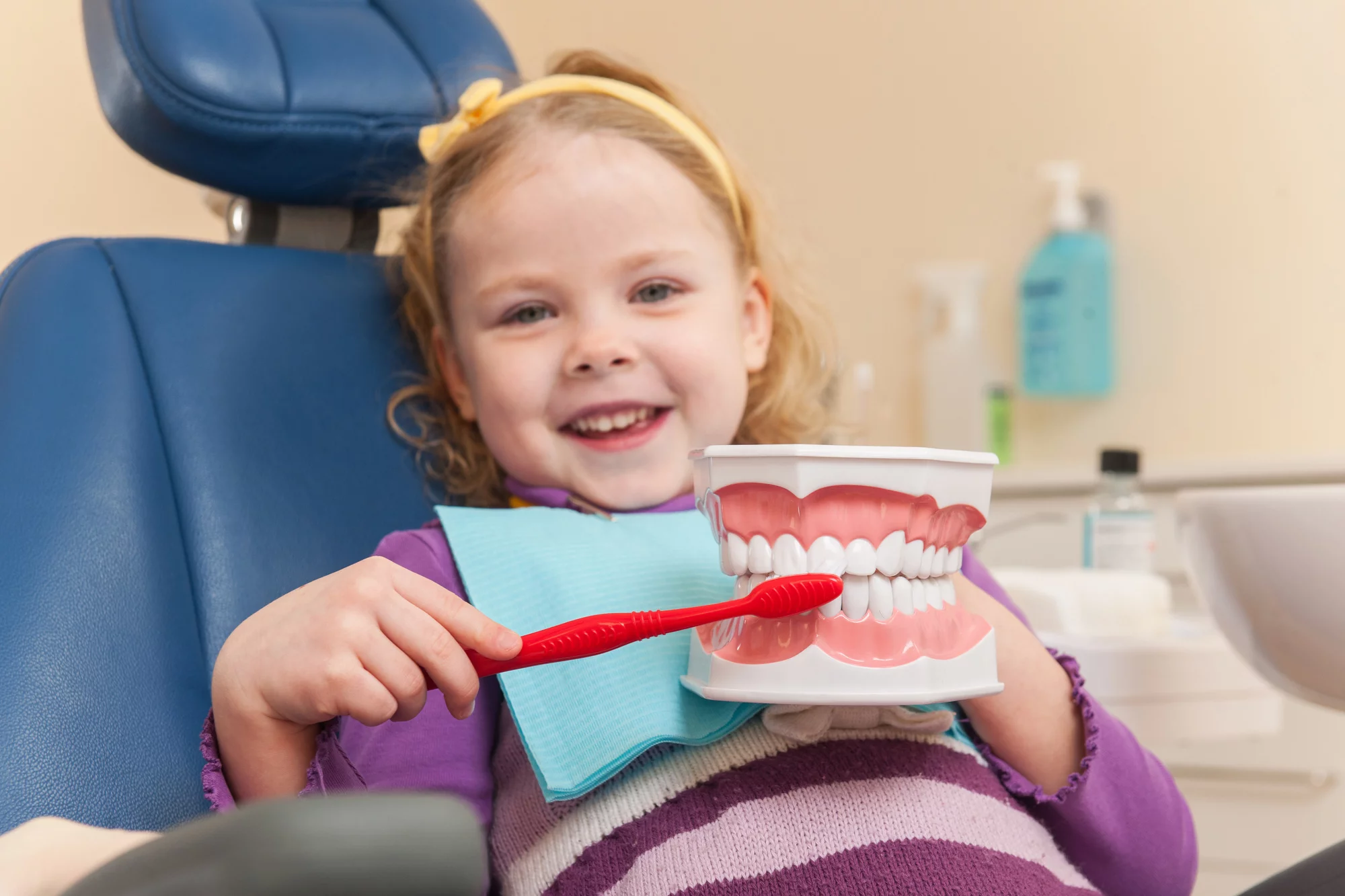Children Dentist: Expert Dental Providers for Kids of All Ages
Children Dentist: Expert Dental Providers for Kids of All Ages
Blog Article
Navigating Common Pediatric Dental Issues: An Extensive Check Out Preventive Dental Take Care Of Kids
Attending to pediatric oral issues is vital for cultivating lasting oral health and wellness in kids. The value of preventive care can not be overemphasized, as it lays the foundation for reliable oral hygiene practices and dietary options that minimize common problems such as tooth cavities and periodontal condition. When to start dental sees and what techniques to take on can encourage parents to take aggressive measures, understanding. However, many moms and dads continue to be not aware of the certain actions that can be required to safeguard their youngsters's oral wellness. Checking out these methods exposes important insights that may significantly affect their child's future well-being.
Common Pediatric Dental Issues
Kid's oral health is essential for their total health, yet countless problems can arise throughout their developmental years. Among one of the most prevalent problems are tooth decays, typically referred to as dental caries, which can happen as a result of bad oral health and excessive sugar consumption. This condition can bring about discomfort, infection, and subsequent difficulties if left without treatment.
An additional common concern is malocclusion, where teeth are misaligned. This can arise from genetic aspects, early loss of key teeth, or thumb-sucking practices. Malocclusion may not only influence a child's look yet can also harm talking and chewing, demanding orthodontic intervention.
Gum tissue disease, although usually overlooked, is an additional significant problem for children (kid dentist near me). Gingivitis, the beginning of gum tissue disease, can occur from plaque build-up and might lead to much more significant problems if overlooked
Furthermore, oral injury is prevalent among energetic children, typically arising from drops or sports injuries. Such events can trigger fractures or dislodgement of teeth, needing prompt like prevent long-lasting damage.
Acknowledging these typical pediatric dental issues is essential for guaranteeing timely treatment and maintaining optimal dental wellness for kids.
Significance of Preventive Care
Preventive treatment plays a crucial function in maintaining youngsters's oral health and wellness and minimizing the dangers related to common issues like tooth cavities, malocclusion, and gum disease. By focusing on preventative procedures, parents can significantly lower the chance of their kids experiencing these dental issues, which can result in pain, pricey therapies, and long-term wellness issues.
Regular oral check-ups are essential for very early discovery of prospective issues. Throughout these check outs, dental experts can monitor the advancement of jaws and teeth, supply customized guidance, and use needed preventive therapies such as sealants and fluoride varnishes. These treatments help secure against degeneration and advertise optimal oral health and wellness.
Additionally, a solid structure in precautionary treatment fosters positive perspectives towards oral wellness in children. By instilling healthy and balanced routines early on, such as routine brushing and the value of a well balanced diet plan, moms and dads can motivate long-lasting techniques that add to general well-being.
Efficient Dental Health Practices
Establishing efficient dental hygiene practices is critical for guaranteeing that kids preserve healthy and balanced teeth and periodontals throughout their developmental years. Parents must begin by introducing dental care as very early as the eruption of the very first tooth. Using a soft-bristled tooth brush with a tiny head, moms and dads should gently brush their child's teeth twice a day with a fluoride toothpaste proper for their age.

Normal oral examinations, ideally every 6 months, assistance monitor dental wellness and develop a routine of preventive treatment. Furthermore, teaching youngsters the value of brushing for at the very least two mins, concentrating on all surfaces of the teeth, and using a timer or song can make the procedure pleasurable.
Urging kids to take responsibility for their dental hygiene cultivates lifelong behaviors. By instilling these methods early, moms and dads can dramatically minimize the risk of dental caries and gum condition, leading the way for a lifetime of oral health.
Dietary Factors To Consider for Dental Health
While normal oral health is crucial for preserving dental health, dietary choices also significantly influence the condition of children's gum tissues and teeth. A well balanced diet regimen abundant in vital nutrients can enhance enamel and assistance general dental health and wellness.
Alternatively, too much intake of sugary snacks and beverages can lead to tooth decay and cavities. Bacteria in the mouth feed upon sugar, producing acids that attack tooth enamel (kid dentist near me). Parents should encourage much healthier treat alternatives, such as fruits, veggies, visit this web-site and entire grains, while limiting sugary deals with
Furthermore, acidic foods and drinks, like citrus fruits and soft drink, can erode enamel gradually. It is a good idea to regulate their intake and maintain a balanced technique. Motivating kids to drink water, particularly fluoridated water, can further advertise oral health and wellness by rinsing away food particles and counteracting acids. In summary, a well-shaped diet is a basic element of preventive dental treatment for kids.
When to Visit the Dentist
Normal dental visits are crucial for preserving optimum oral health in kids. The American Academy of Pediatric Dental care suggests that children have their very first oral visit by the age of one or within six months after their very first tooth appears. Early check outs permit the establishment of an oral home, promoting a relying on this contact form relationship in between the kid and the dental practitioner while assisting in preventative care.
Regular exams ought to take place every six months to keep track of the growth of the child's teeth, examine oral hygiene practices, and apply precautionary treatments such as fluoride varnishes and oral sealants. Furthermore, moms and dads should arrange instant consultations if they discover any type of indicators of oral issues, such as toothache, level of sensitivity, swelling, or staining, as these might indicate tooth cavities or other worries calling for prompt attention.
Kids with unique wellness treatment requirements or a history of dental troubles might require even more constant brows through. By sticking to these guidelines, parents can help make sure that their kids preserve a healthy and balanced smile and create excellent oral behaviors that last a life time. Generally, regular oral brows through are essential for early detection and intervention, which can substantially influence lasting oral wellness end results.
Conclusion
Regular dental visits play an essential function in the timely recognition of potential troubles, making sure that children develop healthy and balanced habits from a young age. By focusing on these steps, moms and dads can contribute to their children's general wellness and oral success.

Report this page